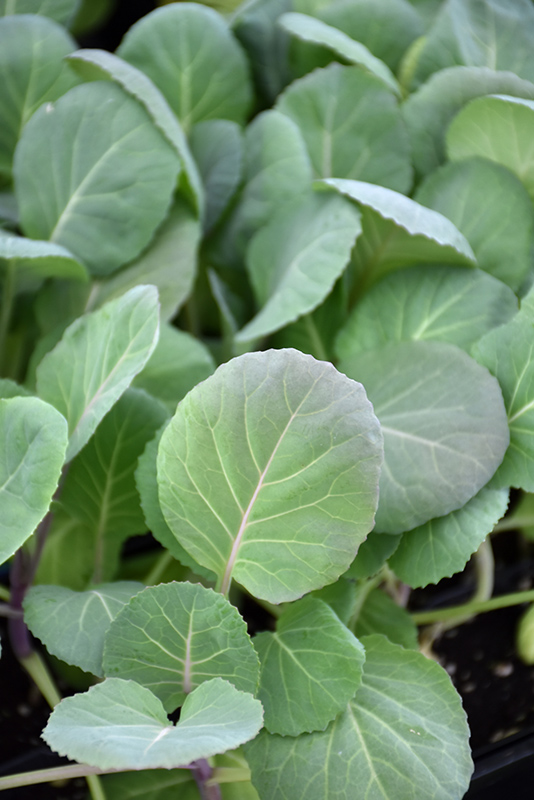Collard Greens
Brassica oleracea var. viridis
Height: 3 feet
Spacing: 18 inches
Sunlight:
![]()
![]()
Hardiness Zone: (annual)
Description:
Dark green leaves with cream spines make this plant a staple in the culinary world; withstanding moderate frost, this is a perfect cool weather performer; a slightly bitter taste makes it great for cooked side dishes as well as added to soups and stews
Edible Qualities
Collard Greens is an annual vegetable plant that is commonly grown for its edible qualities. The oval dark green leaves with pointy creamy white spines can be harvested at any time in the season. The leaves have a bitter taste.
The leaves are most often used in the following ways:
- Fresh Eating
- Eating When Cooked/Prepared
- Cooking
Planting & Growing
Collard Greens will grow to be about 3 feet tall at maturity, with a spread of 3 feet. When planted in rows, individual plants should be spaced approximately 18 inches apart. This fast-growing vegetable plant is an annual, which means that it will grow for one season in your garden and then die after producing a crop.
This plant is typically grown in a designated vegetable garden. It does best in full sun to partial shade. It does best in average to evenly moist conditions, but will not tolerate standing water. It is not particular as to soil type or pH. It is somewhat tolerant of urban pollution. This species is not originally from North America.
Collard Greens is a good choice for the vegetable garden, but it is also well-suited for use in outdoor pots and containers. Because of its height, it is often used as a 'thriller' in the 'spiller-thriller-filler' container combination; plant it near the center of the pot, surrounded by smaller plants and those that spill over the edges. It is even sizeable enough that it can be grown alone in a suitable container. Note that when growing plants in outdoor containers and baskets, they may require more frequent waterings than they would in the yard or garden.
